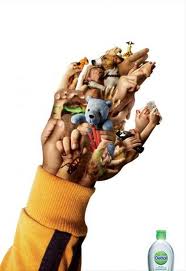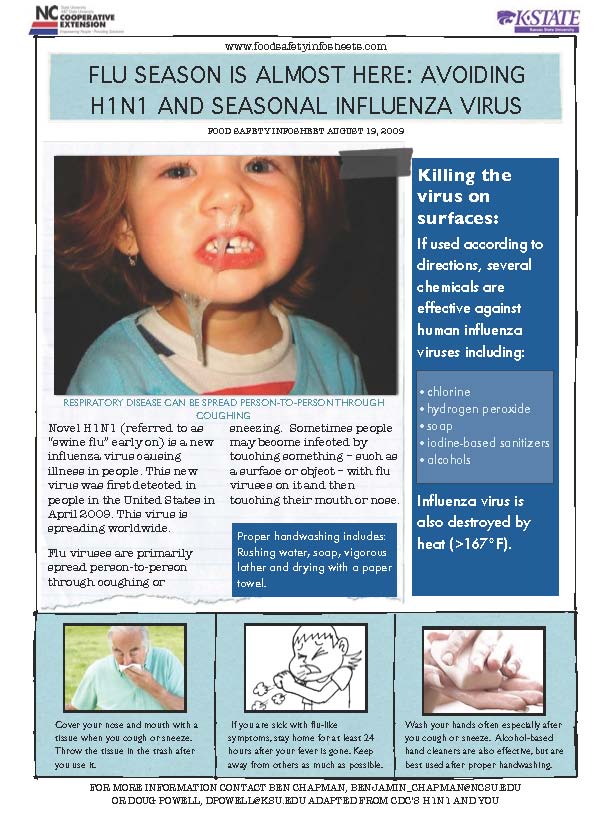AFP reports the regular use of alcohol-based disinfecting hand gels authorities recommended during the swine flu pandemic has little effect on the disease’s infection rate, according to a US study.
The findings suggest that the pandemic virus A (H1N1) and similar strains  may be most effectively transmitted in the air, rather than by contact with infected surfaces, the authors of the study said.
may be most effectively transmitted in the air, rather than by contact with infected surfaces, the authors of the study said.
"An alcohol hand disinfectant with enhanced antiviral activity failed to significantly reduce the frequency of infection with either rhinovirus or influenza," wrote the authors of the study presented on Sunday at the Interscience Conference on Antimicrobial Agents and Chemotherapy (ICAAC) in Boston.
.
Participants in the study disinfected their hands roughly every three hours over ten weeks between August 25 and November 9, 2009. Of that group, 42 out of 100 contracted rhinovirus infections, compared to 51 out of 100 in the control group.
Similarly, 12 of those regularly disinfecting their hands contracted the so-called swine flu, compared to 15 in the control group.
"The hand treatment also did not significantly reduce the frequency of illnesses caused by the viruses," said the authors of the study led by Ronald Turner of the University of Virginia.
The study was financed by the Dial Corporation, which makes various care and cleaning products, including alcohol-based hand sanitiser.

 Recent publications out of the
Recent publications out of the  Last year, some publication at the University of California at Los Angeles – UCLA – warned students that beer pong, a communal drinking game,
Last year, some publication at the University of California at Los Angeles – UCLA – warned students that beer pong, a communal drinking game, 
.jpg) Reingold says you’re more likely to get sick from influenza, especially the H1N1 virus, from airborne particles because inhaling the flu particles gives you a larger dose than by touching a contaminated object. And, according to Nicas, students at UC Berkeley touch their face an average of 16 times per hour. That is 384 times to transmit what ever is on your hands into mucus glands located in your mouth, eyes, and nose in one day.
Reingold says you’re more likely to get sick from influenza, especially the H1N1 virus, from airborne particles because inhaling the flu particles gives you a larger dose than by touching a contaminated object. And, according to Nicas, students at UC Berkeley touch their face an average of 16 times per hour. That is 384 times to transmit what ever is on your hands into mucus glands located in your mouth, eyes, and nose in one day. The national government isn’t calling for a ban. But the Health Ministry, on its swine flu phone hotline, recommends that people avoid "close contact — including shaking hands and giving the bise."
The national government isn’t calling for a ban. But the Health Ministry, on its swine flu phone hotline, recommends that people avoid "close contact — including shaking hands and giving the bise." Manhattan feels markedly different this fall. Returning to campus, I’ve seen
Manhattan feels markedly different this fall. Returning to campus, I’ve seen The policy for distributing communion wafers has always been to wash your hands before the service starts, but now there is also a bottle of antibacterial available to use immediately before giving out communion. St. Isidore’s is just one of many churches around the country (and globally) implementing these anti-flu strategies.
The policy for distributing communion wafers has always been to wash your hands before the service starts, but now there is also a bottle of antibacterial available to use immediately before giving out communion. St. Isidore’s is just one of many churches around the country (and globally) implementing these anti-flu strategies. 
.jpg) Jon Dommisse, Bradley Corporation’s director of marketing and product development said, “we were extremely surprised by that response especially since the medical community calls hand washing the best defense against the spread of cold and flu viruses.”
Jon Dommisse, Bradley Corporation’s director of marketing and product development said, “we were extremely surprised by that response especially since the medical community calls hand washing the best defense against the spread of cold and flu viruses.”
 Some people have told us images like the one below, are too graphic and will offend people. Maybe. I’m offended that people don’t wash their hands which can lead to other people barfing and spreading things like the H1N1 virus.
Some people have told us images like the one below, are too graphic and will offend people. Maybe. I’m offended that people don’t wash their hands which can lead to other people barfing and spreading things like the H1N1 virus. 
 OK,
OK,